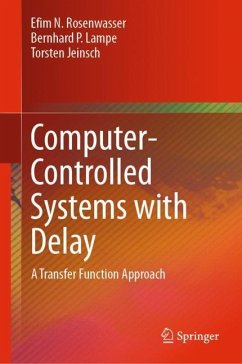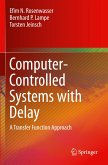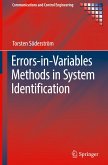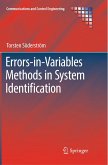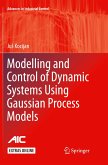Computer-Controlled Systems with Delay is a systematic study of the problems of analysis and synthesis for multidimensional sampled-data (SD) systems with delay. It is based on the frequency polynomial method, in which the concept of a parametric transfer matrix (PTM) plays a key role. Until now, no alternative general methods have been available to solve the above problems.
The text is divided into three parts:
background information from the theory of polynomial and rational matrices, helps the reader to acquire the basic understanding necessary to use the main content of the book without addressing additional sources;
methods for the mathematical description of multidimensional SD systems with delay, based on the concept of the PTM; and
optimization methods for multidimensional SD systems with delay, including H2 andL2 optimization as well as H2 optimization for colored input signals.
The monograph is completed by three appendices. An algorithm for constructing the set of pathological sampling periods for a continuous SISO object with delay is provided first. MATLAB®-toolbox algorithms representing methods described in the book and application examples for selected optimization problems are given in the second. A solution to the problem of guaranteeing the required performance in a class of stochastic disturbances for SD systems with delay is considered in the third.
Computer-Controlled Systems with Delay is intended for engineers, scientists and teachers working in modern control theory. It will also benefit post-graduate students taking courses in related disciplines. The book continues the description of the authors' research results on developing methods for SD systems theory which are based onthe PTM concept and published in the monographs Computer Controlled Systems and Multivariable Computer-controlled Systems.
Hinweis: Dieser Artikel kann nur an eine deutsche Lieferadresse ausgeliefert werden.
The text is divided into three parts:
background information from the theory of polynomial and rational matrices, helps the reader to acquire the basic understanding necessary to use the main content of the book without addressing additional sources;
methods for the mathematical description of multidimensional SD systems with delay, based on the concept of the PTM; and
optimization methods for multidimensional SD systems with delay, including H2 andL2 optimization as well as H2 optimization for colored input signals.
The monograph is completed by three appendices. An algorithm for constructing the set of pathological sampling periods for a continuous SISO object with delay is provided first. MATLAB®-toolbox algorithms representing methods described in the book and application examples for selected optimization problems are given in the second. A solution to the problem of guaranteeing the required performance in a class of stochastic disturbances for SD systems with delay is considered in the third.
Computer-Controlled Systems with Delay is intended for engineers, scientists and teachers working in modern control theory. It will also benefit post-graduate students taking courses in related disciplines. The book continues the description of the authors' research results on developing methods for SD systems theory which are based onthe PTM concept and published in the monographs Computer Controlled Systems and Multivariable Computer-controlled Systems.
Hinweis: Dieser Artikel kann nur an eine deutsche Lieferadresse ausgeliefert werden.
"I believe that the book is best suited to be used as a valuable and rich reference source for advanced students and dedicated researchers. ... it is a valuable reference for control researchers and practitioners having the need to develop and analyze more-advanced control algorithms." (Milan Rapaic, Mathematical Reviews, March 2, 2020)

